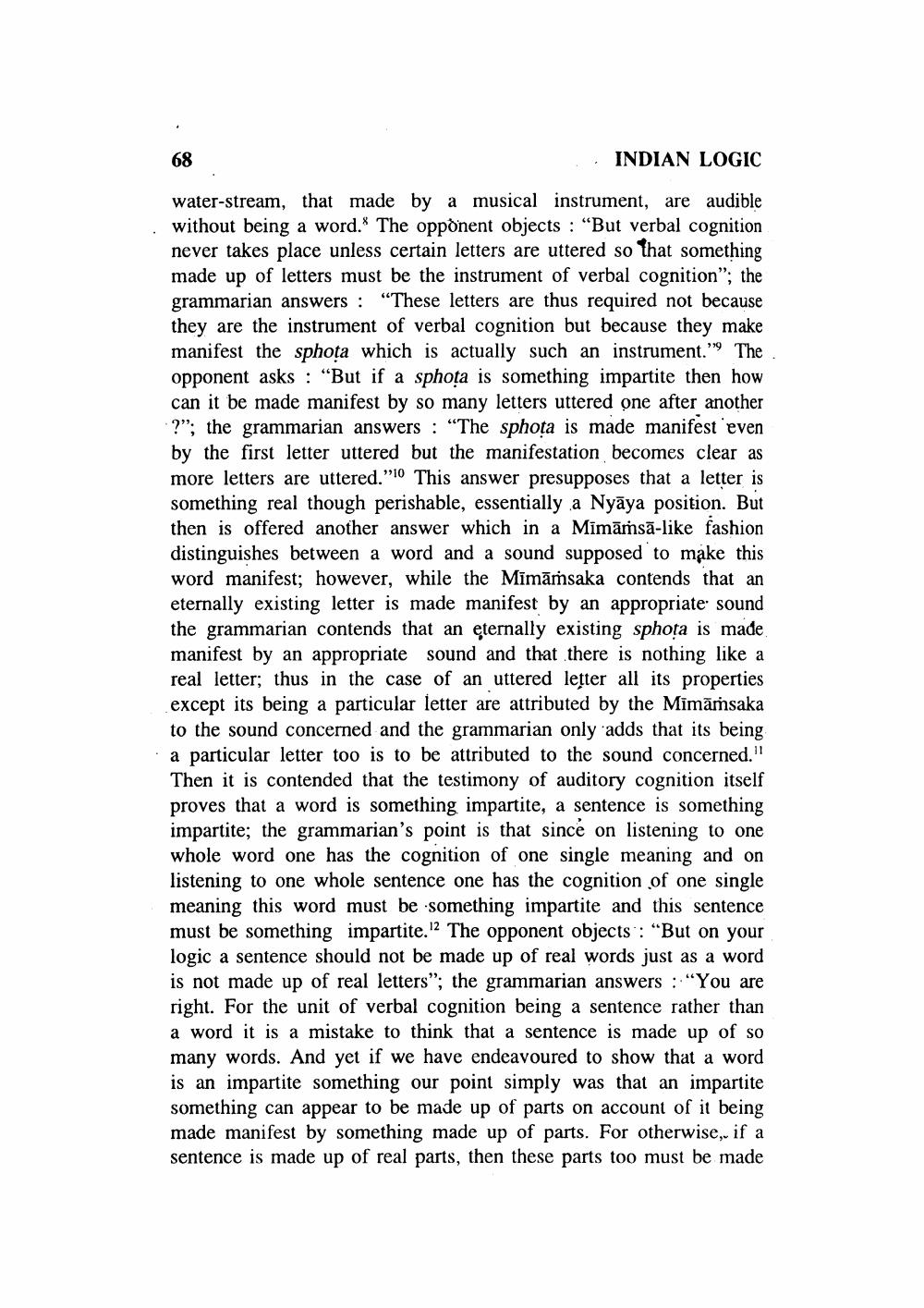________________
68
INDIAN LOGIC
water-stream, that made by a musical instrument, are audible without being a word. The opponent objects: "But verbal cognition never takes place unless certain letters are uttered so that something made up of letters must be the instrument of verbal cognition"; the grammarian answers: "These letters are thus required not because they are the instrument of verbal cognition but because they make manifest the sphota which is actually such an instrument." The opponent asks "But if a sphota is something impartite then how can it be made manifest by so many letters uttered one after another ?"; the grammarian answers: "The sphota is made manifest even by the first letter uttered but the manifestation becomes clear as more letters are uttered." This answer presupposes that a letter is something real though perishable, essentially a Nyaya position. But then is offered another answer which in a Mimämsä-like fashion distinguishes between a word and a sound supposed to make this word manifest; however, while the Mimämsaka contends that an eternally existing letter is made manifest by an appropriate sound the grammarian contends that an eternally existing sphota is made manifest by an appropriate sound and that there is nothing like a real letter; thus in the case of an uttered letter all its properties except its being a particular letter are attributed by the Mimärisaka to the sound concerned and the grammarian only adds that its being. a particular letter too is to be attributed to the sound concerned." Then it is contended that the testimony of auditory cognition itself proves that a word is something impartite, a sentence is something impartite; the grammarian's point is that since on listening to one whole word one has the cognition of one single meaning and on listening to one whole sentence one has the cognition of one single meaning this word must be something impartite and this sentence must be something impartite." The opponent objects: "But on your logic a sentence should not be made up of real words just as a word is not made up of real letters"; the grammarian answers: "You are right. For the unit of verbal cognition being a sentence rather than a word it is a mistake to think that a sentence is made up of so many words. And yet if we have endeavoured to show that a word is an impartite something our point simply was that an impartite something can appear to be made up of parts on account of it being made manifest by something made up of parts. For otherwise, if a sentence is made up of real parts, then these parts too must be made




